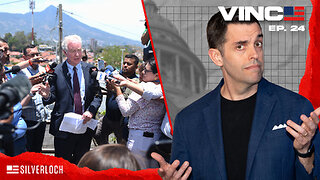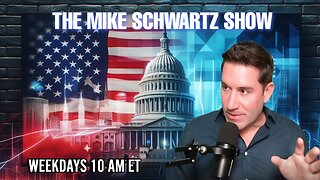Premium Only Content

An Incredible Brief History On Healthcare Of U.S
In this video, I'll be giving a brief history of healthcare in the U.S.
Thanks for watching! Make sure to subscribe for more updates!
It will be greatly appreciated if you helped the channel so we can put new material out.
Donation: https://rb.gy/atxw6g
Timestamps:
00:00 Start
0:11 Colonial Period to Early 19th Century.
0:40 Late 19th Century
0:57 Early 20th Century
1:13 1920s-1930s
1:32 1940s-1950s
1:53 1965
2:13 1970s-1980s
2:32 1990s
3:09 2000s
3:29 2010
3:47 The Recent Trends
4:36 Conclusion
Transcription:
Hi, Today, we're exploring a brief intro into the history of healthcare in the United States, so lets dive in!
The Colonial Period to Early 19th Century. Healthcare in the early 19th century was rudimentary, often provided by family members or local practitioners with little formal training. In order words, healthcare is provided by your aunt who also happens to be your town’s best baker. Hospitals were scarce and mainly served as places for the poor or mentally ill.
In Late 19th Century, the establishment of medical schools and hospitals began to formalize the practice of medicine. Advances in medical science, such as the discovery of germs and the development of anesthesia, started to improve the quality of care.
In early 20th Century, healthcare began to professionalize with the founding of the American Medical Association (AMA) and the establishment of standards for medical education. Hospitals expanded, and specialized fields of medicine developed.
During the 1920s and1930s, the concept of health insurance emerged. The Great Depression highlighted the need for medical coverage, leading to the formation of Blue Cross (hospital insurance) and later Blue Shield (physician services).
In the 1940s and 1950s, World War II and its aftermath brought significant changes. Employer-sponsored health insurance became common due to wage controls during the war. In 1946, the Hill-Burton Act funded hospital construction.
In 1965, The Social Security Amendments of 1965 established Medicare and Medicaid. Medicare provided health insurance for individuals aged 65 and older, while Medicaid offered coverage for low-income individuals and families.
Through the 1970s and 1980s, rising healthcare costs became a significant concern. The Health Maintenance Organization Act of 1973 aimed to control costs through prepaid health plans. Despite these efforts, healthcare expenses continued to grow.
In the 1990s, the Health Insurance Portability and Accountability Act (HIPAA) of 1996 introduced reforms to ensure the portability of health insurance and protect patient privacy. The Children's Health Insurance Program (CHIP) was established in 1997 to provide coverage for uninsured children.
The 21st Century: The Affordable Care Act and Beyond
In early 2000s, rising costs and a significant number of uninsured Americans led to calls for reform. Efforts by various administrations culminated in the Affordable Care Act (ACA), signed into law by President Barack Obama in 2010.
The Affordable Care Act (2010). The ACA aimed to increase insurance coverage through Medicaid expansion, health insurance exchanges, and mandates for individuals and employers. It also sought to improve healthcare quality and reduce costs.
The Recent Trends and Current Issues
In 2010s and 2020s, the ACA faced numerous political challenges and legal battles, but many of its provisions remain in place. Efforts to repeal and replace the ACA have been contentious. The COVID-19 pandemic highlighted ongoing issues in the U.S. healthcare system, such as disparities in access to care and the need for public health infrastructure.
The Current Issues as of today, debates continue over healthcare costs, insurance coverage, pharmaceutical pricing, and the role of government in healthcare. Innovations in telemedicine and digital health are reshaping how care is delivered.
The brief history of healthcare conclusion is, the history of healthcare in the United States reflects a complex interplay of medical advances, economic forces, and political debates. While significant progress has been made in terms of medical technology and access to care, challenges such as cost, inequality, and the need for comprehensive reform remain central to ongoing discussions about the future of American healthcare.
Thank you for watching, please share your thoughts in the comment section on this video, share this video with friends and family, subscribe, and as always, have a great day ahead.
-
 LIVE
LIVE
Grant Stinchfield
33 minutes agoHANDSHAKES FOR A SCHOOL SHOOTER?! FOUR SHOT, COPS GRIN — AMERICA FUMES
213 watching -
 1:00:23
1:00:23
VINCE
3 hours agoThe Immigration Hill The Dems Will Die On | Episode 24 - 04/17/25
152K165 -
 DVR
DVR
Bannons War Room
1 month agoWarRoom Live
12.5M3.28K -
 1:19:07
1:19:07
Dear America
11 hours agoIllegals Over Americans: The Left’s True Agenda
100K52 -
 2:11:54
2:11:54
Matt Kohrs
14 hours agoBounce or Bust?! || The MK Show
51.4K3 -
 DVR
DVR
Badlands Media
9 hours agoBadlands Daily: April 17, 2025
48.8K11 -
 6:53
6:53
Talk Nerdy Sports - The Ultimate Sports Betting Podcast
1 hour agoEmotion is Dead: AI-Driven Carnage for April 17th
11.6K1 -
 2:03:18
2:03:18
Megyn Kelly
17 hours agoBlue Origin "Mission" Brutally Mocked, and Defamation Case Against NBC, w/ Ungar-Sargon and Evans
25K34 -
 LIVE
LIVE
The Big Mig™
4 hours agoBritfield Series Award Winning Best Selling Author Chad Stewart
4,634 watching -
 59:37
59:37
2 MIKES LIVE
4 hours agoTHE MIKE SCHWARTZ SHOW with DR. MICHAEL J SCHWARTZ 04-17-2025
25.5K1